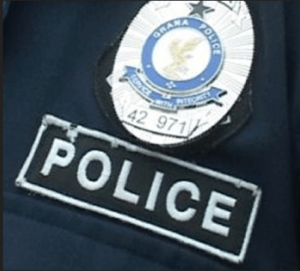Ghana Police Service launches Revised Instruction, Communications, Public Education Strategy
 The Ghana Police Service has launched its Revised Service Instructions and Communications Strategy to ensure professionalism at all times in spite of the hazards officers face in the line of duty.
The Ghana Police Service has launched its Revised Service Instructions and Communications Strategy to ensure professionalism at all times in spite of the hazards officers face in the line of duty.
The two documents were funded by the European Union through its Anti-Corruption, Rule of Law and Accountability Programme (ARAP) and formed part of the transformation agenda within the Service.
Mr Ambrose Dery, the Minister of the Interior, said the launch was important for the ongoing transformation agenda of the Service, which was initiated two years ago.
He said the transformation agenda drives the vision of the Service to become a world-class one capable of delivering planned, democratic, protective and peaceful services to meet international standards and best practices.
Mr Dery said the same set of instructions that governed the professional conduct of the Ghana Police Service after independence in 1957, remained the same till now even though the organisation had become a Service respecting the principles of democratic policing.
“It is, therefore, in the right direction that a review has been done on the old service Instructions to come out with a modern version that will reflect current demands of the Police Service as it undergoes transformation.”
Mr Dery said internal security was key to Ghana’s democratic exploits and expressed the Ministry’s support for the Inspector-General of Police and the entire Police Service in the transformation efforts.
He gave the assurance that government would continue to play its constitutional role of equipping and maintaining the Police Service so as to enable it to perform its legitimate duty of maintaining law and order.
Mr David Asante-Apeatu, the Inspector-General of Police, said the launch was in furtherance of the agenda to transform the Police Service to bring about effective law enforcement and respect for human rights and improved police-public/citizens engagement.
“In the discharge of our responsibilities, we face all kinds of social and professional hazards, yet we go all out to deliver our respective mandates sometimes at the peril of our lives,” he said.
“In the course of duty, some of us get injured, maimed and at the extreme lives are lost. Many have always questioned the basis of some of our actions or inactions without recourse to the fundamental documents that serve as our anchor.”
The IGP expressed the hope that the two documents would foster stronger and mutual understanding between the Police and its varied stakeholders as they willingly support and provide positive feedback on policing matters to enhance public safety, respect for the rights of each other, and the growth of the principles of democratic policing in Ghana.
Mrs Diana Acconcia, the Ambassador and Head of European Union Delegation to Ghana, said the ARAP has been supporting the Ghana Police Service with capacity building for effective prosecution and improving professional standards and strengthening accountability to Ghana’s citizens.
“Some of the key milestones within these processes have been the development of the Manual of Guidance on Complaints and Discipline Procedures and the roll out of the Front Line Supervision Training, reaching in total 2000 inspectors and chief inspectors,” she added.
Those efforts, she said, were geared towards equipping police officers across Ghana with better staff management, ethics and performance at field level to prevent misconduct and corruption.
The retired officers who served on the Review Committee were each honoured with a plaque.
Source: GNA
